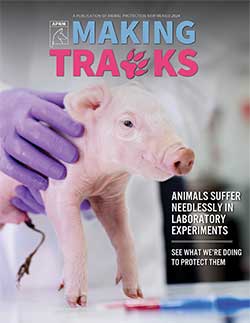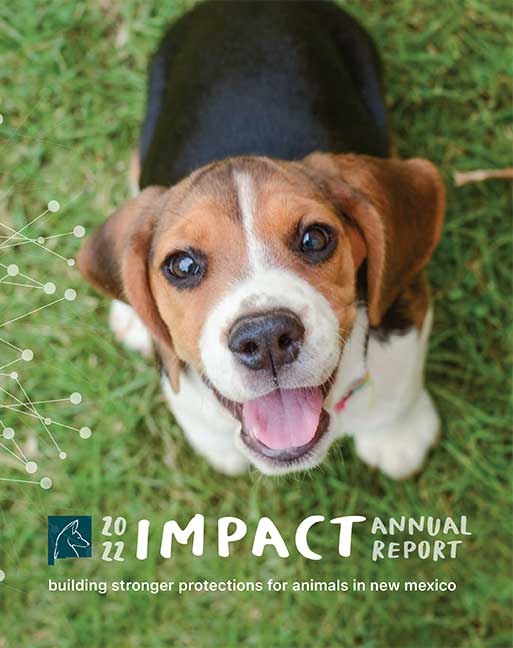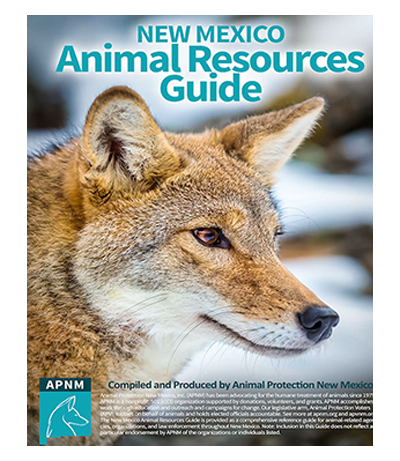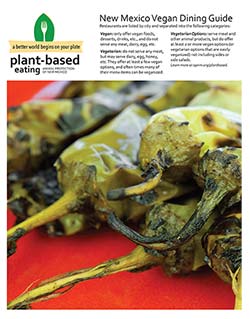Citizens are subject to a variety of laws made by city, county, state and federal governments. In general, all laws are part of a hierarchy in which federal laws are at the top, local laws at the bottom, and state laws somewhere in between. In order for individuals to work effectively on behalf of animals, it is important to understand how these laws fit together. A brief summary follows of each of the different kinds of laws, with an explanation of how they are interrelated. (Please note that Tribal lands are sovereign nations, each with their own sets of laws.)
Statutes
The United States Constitution is the supreme law of the land. No federal or state law may violate it. Federal laws (statutes), enacted by the United States Congress, must be followed by every state in the country. If a state law contradicts a federal law, the federal statute preempts the state law, and the state will be required to abide by the federal statute. However, federal laws do not cover all areas of the law, and in those instances, state or local laws will control.
Similarly, within a state, the state constitution represents the highest legal authority. The state may then enact state statutes, which apply to everyone within the state. State statutes cannot violate the state constitution, the federal constitution, or federal law.
The term “statute” simply refers to a law enacted by a legislative body of a government, whether federal or state. At the federal level, statutes regarding animals usually focus on the interstate aspects of our relationships to animals. Protection of migratory birds, for example, or the importation, interstate transportation and sale of endangered animals are covered by federal statutes.
The states have the authority to regulate animals within their borders. Wildlife is considered to be held in public trust by a state for the benefit of its citizens. Each state may enact laws to govern how its wildlife is used, protected, etc. Domestic animals are privately owned, and are generally considered to be property under state law. A state may enact laws to govern how these animals are bought and sold. A state may also enact laws for the benefit of public health and welfare, which govern how animals may be treated. However, state statutes are sometimes challenged. For instance, when there is a question as to a statute’s meaning, or to determine if a statute follows the state constitution, the Supreme Court is asked to review the law. The Court then writes an opinion on that law.
State statutes are the starting points for most animal law in New Mexico. State statutes provide the framework for the comprehensive structure of animal law throughout the state. The state cannot explicitly cover all the potential interests in animal law by statute, however, so it delegates some of its authority to state agencies and to local units of government (counties and cities). For instance, state laws and local animal control ordinances govern conduct involving animal cruelty.
Regulations
State executive agencies carry out state laws through the development and enforcement of regulations in specific areas of animal law. The state Game Commission, Racing Commission, Livestock Board, and Veterinary Board are state executive agencies.
Authorized by statutes, regulations (sometimes called rules or administrative laws) have the effect of law. Someone violating a regulation is, in effect, violating the law that created it. Regulations are designed to increase flexibility and efficiency in the operation of laws. Many of the actual working provisions of statutes are embodied in regulations.
Most regulations are developed and enacted through a rule-making process, which includes public input. State agencies hold open meetings and public hearings, allowing citizens to participate in the creation of regulations. Participation in the process is extremely important, but often overlooked by citizens. It provides a unique opportunity for citizens to influence and shapes their laws directly. Most regulations are in effect for only a limited period of time and must be updated or reenacted on a regular basis.
Ordinances
Just as a state may delegate the authority to make regulations to administrative agencies, it may also delegate certain powers to other units of government within the state. County and municipal governments enact laws, often called ordinances, via specific powers granted to them by the state. County and municipal ordinances apply to everyone within the county or municipality limits. These ordinances may not violate state or federal laws.
The powers of county and municipal governments relating to animals typically include such things as: regulation of companion animals through leash laws and vaccination registration laws; regulation of issues relating to public health and safety; and regulation of the number and kinds of animals that may be kept within county or city boundaries.
Common Law
Common law is sometimes called “judge-made” law. It consists of the rules of law that come from the written decisions of judges who hear and decide litigation (lawsuits). Judges are empowered to make these decisions by the constitution and statutes. When a judge decides a case and publishes a written decision, the decision becomes the precedent for future litigation.
In conclusion, it is necessary to be familiar with all these areas of the law, so that animals may be protected to the highest degree allowable. A greater understanding of current laws (including how they are enforced) will lead to an understanding of which laws need to be changed in order to afford animals the most protection possible.









